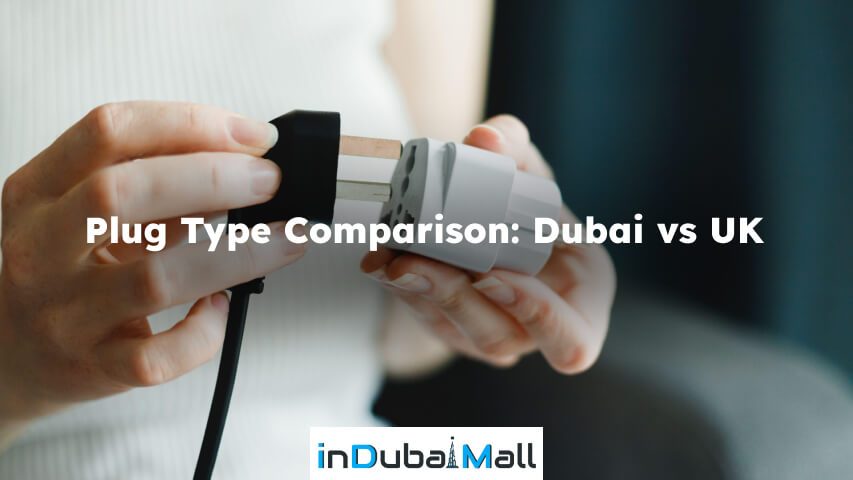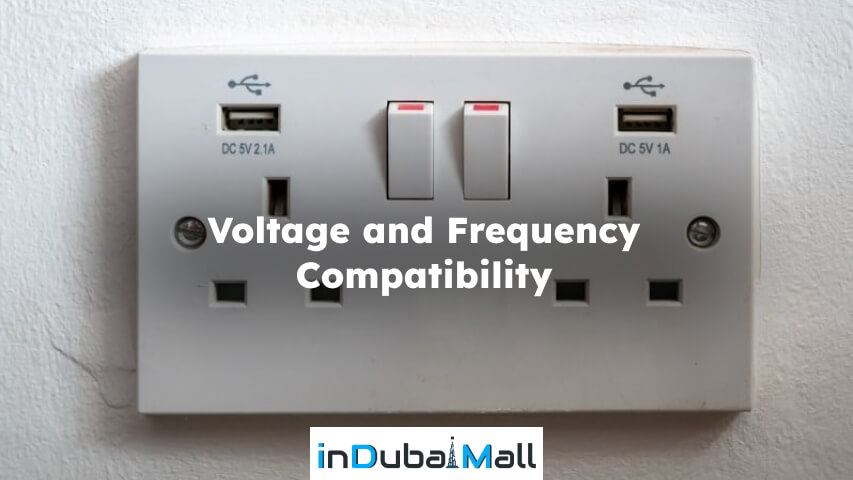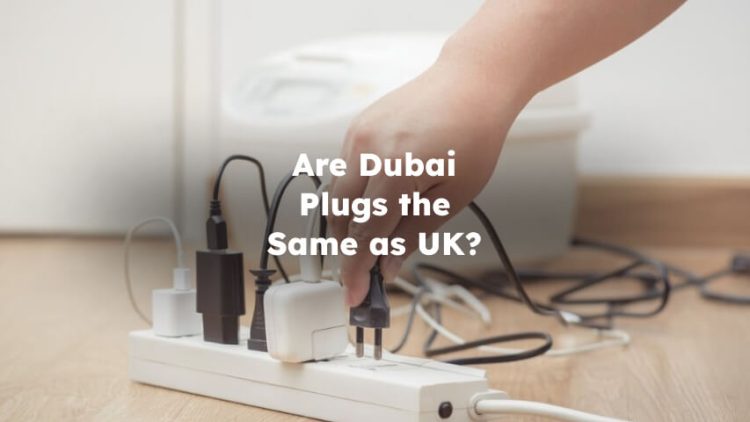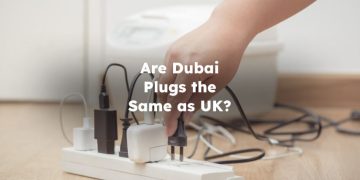If you’re relocating to Dubai from the UK, whether for a job, an extended visit, or permanently, you might be curious about what to do with your electrical appliances. Generally, it’s more economical to take your electrical appliances with you rather than buy new ones in your new country, but is this true for Dubai? Are Dubai plugs the same as UK? UK movers is that the UK and Dubai both use Type G plugs, meaning the plug shape is the same. 1st Move International has been assisting UK movers in shipping their personal items such as electrical appliances, to Dubai for more than 25 years. In this guide on Indubaimall, we will discuss everything you need to know about using and shipping UK electrical appliances to Dubai. We will examine plug compatibility, voltage variations, which appliances are safe to bring, and when it might be more advantageous to purchase adapter or converter.
Plug Type Comparison: Dubai vs UK
Are Dubai plugs the same as UK? You’re in luck! The UAE uses the same type G plug as the UK, so you shouldn’t need a power adapter if your appliances have the standard UK 3-pin plug. In other words, in Dubai and throughout the UAE, Type G plugs are the norm. This plug type is identical to that used in the United Kingdom, featuring three rectangular prongs arranged in a triangle. The standard voltage in Dubai is 230V, and the frequency is 50Hz. A crucial item for every traveler, a plug adaptor enables you to use your personal electronic devices globally. Navigating the annoying variations in plug and socket designs has become a skill as the number of devices we carry has grown. Life would be unmanageable without our phones, tablets, and laptops that keep us linked to the world and informed around the clock.


Voltage and Frequency Compatibility
Luckily, the UK and Dubai have the same voltage and frequency for electrical devices. Most UK products are made to work within this voltage range, allowing them to be plugged into Dubai outlets without any changes. However, it’s crucial to check the label and confirm that your devices are rated 220–240V, 50Hz. If you own devices rated 110–120V, which are typical for US and Japanese products, you cannot use them without a step-down transformer, or they may get damaged. Both UK and Dubai sockets can handle up to 13 amps, but some older buildings in Dubai might only support 10 amps. If your devices require more amps than the plug can provide, it could blow the fuse or overheat the wiring. Always verify the wattage on the appliance to determine the amps. If it shows 3000W or more, that equals 13 amps, so it’s wise to be careful. In summary, the compatibility of voltage, frequency, and amperage will help you avoid spending money on costly voltage converters, large adapters, and rewiring your devices in Dubai.


When Might You Need an Adapter or Converter?
Electricity supplies around the world can range from 100V to 240V. Using an electrical device rated for a different voltage than the supply can be very dangerous. Since voltage levels can vary by country, you might need a voltage converter or transformer when in Dubai. If the frequency is also different, it can affect how an electrical device works. For instance, a clock designed for 50Hz may run faster on a 60Hz supply. Most voltage converters and transformers include plug adaptors, so you might not need to purchase a separate travel adaptor. All converters and transformers have a maximum power rating (AMPS or WATTS), so make sure that any device you plan to use does not exceed this limit.
Do I need a plug adapter for Dubai? We should say that when you are traveling from the UK to Dubai, you will probably just need a plug adapter, not a voltage converter, since both countries use the same Type G plug and have a power supply of 230V, 50Hz. Therefore, UK to UAE plug adapter is Dubai plug type G. However, it’s important to check the label on your devices to make sure they are rated for 220-240V, 50Hz, because devices made for different voltages (such as 110-120V from the US) will need a voltage converter.






















